![18-year-old YPJ fighter Torin Khairegi: “We live ina world where women are dominated by men.We are here to take control of our future..I injured an ISIS jihadi in Kobane. When he was wounded, all his friends left him behind and ran away. Later I went there and buried his body. I now feel that I am very powerful and can defend my home, my friends, my country, and myself. Many of us have been matryred and I see no path other than the continuation of their path." Newsha Tavakolian for TIME Zinar base, Syria "I joined YPJ about seven months ago, because I was looking for something meaningful in my life and my leader [ Abdullah Ocalan] showed me the way and my role in the society. We live in a world where women are dominated by men. We are here to take control of our own future. We are not merely fighting with arms; we fight with our thoughts. Ocalan's ideology is always in our hearts and minds and it is with his thought that we become so empowered that we can even become better soldiers than men. When I am at the frontline, the thought of all the cruelty and injustice against women enrages me so much that I become extra-powerful in combat. I injured an ISIS jihadi in Kobane. When he was wounded, all his friends left him behind and ran away. Later I went there and buried his body. I now feel that I am very powerful and can defend my home, my friends, my country, and myself. Many of us have been matryred and I see no path other than the continuation of their path."](https://api.time.com/wp-content/uploads/2015/04/kurdish-women-fighters-syria-isis-newsha-tavakolian-09.jpg?quality=85&w=2400)
A colorful scarf is all that is left of Cicek Derek, who was 17 when she died a few months ago in the besieged city of Kobani, Syria, where her compatriots were unable to retrieve her body.
Cicek was one of hundreds of young Kurdish female soldiers who have taken up the fight against ISIS. They’re part of the YPJ, or Women’s Protection Unit, an offshoot of the Kurdistan Workers’ Party (PKK), a Kurdish nationalist movement that has long fought a war of independence against Turkey.
Now the PKK and other Kurdish groups are at the forefront of the battle against the Islamic State of Iraq and Greater Syria, a militant group that would severely curtail the rights of women. It’s fitting that ISIS will be facing off against female fighters like 18-year-old Zilan Orkesh, who left her small village on the Turkish-Syrian border to join YPJ in 2011. When she killed an ISIS fighter for the first time, she began cheering loudly, hoping the sound would reach the ears of other jihadis. “I wanted to let them know that their worst nightmare had come true,” she says. “Their friend had been killed by a woman.”
But it’s not just the battle against ISIS that brings these young women to a spare military camp in Syria, a half hour away from the front lines. Abdullah Ocalan, the leader of the PKK, is unusual in the region in that he has long promoted gender equality. The desire to break free from the macho Middle East was so strong that rural girls volunteered to join the YPJ, where they developed into soldiers ready to put their lives on the line. “In the past, women had various roles in the society, but all those roles were taken from them,” says 18-year-old Saria Zilan. “We are here now to take back the role of women in society.”
That fight has a cost. Several miles from the all-female camp, there is a fresh graveyard. Men are digging the earth, clearing space for new arrivals as the sun sets, and a YPJ flag dances above a grave. Not far is the house where Cicek once lived. Inside, Cicek’s three sisters and her mother sit around a portrait of the fighter.
Cicek’s mother, Nasiba, didn’t want her daughter to join the YPJ. “She was only 13,” Nasiba says. “She met a YPJ member [an armed Kurdish force] at her brother’s house and he started influencing her. And before we knew it, she left home and went to Mount Qandil [the PKK’s main base in northern Iraq]. She was 17 when she was killed.” Nasiba isn’t alone in her criticism. There’s something uncomfortable about girls barely into their teens leaving home to join a guerrilla army at Ocalan’s behest. Especially when—like Cicek—they don’t come home at all.
But her older sister Rojin remembers the way that joining the YPJ seemed to transform Cicek. “She came back from Qandil after four years, and she was a different person,” says Rojin. “She was tough and confident.”
Once the sun sets, the town is dark—power has long been out here. The only lights seen are those of passing cars, among them a truck that drives slowly through the town. Revolutionary Kurdish songs play from megaphones attached to the truck. The music seizes the attention of young boys and girls hanging around the neighborhood. One by one, they join the trail of people following the vehicle.
In a dark corner of the house, with a little bit of light falling on her face, Cicek’s sister stands in silence. She is listening to young revolutionaries chant along with the songs that the megaphones blare, songs about Kobani and martyrdom that urge the survivors of battle to rise and continue the fight. Rojin is the last person to leave the mourning caravan behind the truck, lost in thought.
Newsha Tavakolian is an Iranian freelance photographer based in Tehran. Last year, she won the Carmignac Gestion Photojournalism Award.
Alice Gabriner, who edited this photo essay, is TIME’s International Photo Editor.
Read next: Los Angeles Airport Security Boosted Amid Possible ISIS Threat
Listen to the most important stories of the day.
![18-year-old YPJ fighter Torin Khairegi: “We live ina world where women are dominated by men.We are here to take control of our future..I injured an ISIS jihadi in Kobane. When he was wounded, all his friends left him behind and ran away. Later I went there and buried his body. I now feel that I am very powerful and can defend my home, my friends, my country, and myself. Many of us have been matryred and I see no path other than the continuation of their path." Newsha Tavakolian for TIME Zinar base, Syria "I joined YPJ about seven months ago, because I was looking for something meaningful in my life and my leader [ Abdullah Ocalan] showed me the way and my role in the society. We live in a world where women are dominated by men. We are here to take control of our own future. We are not merely fighting with arms; we fight with our thoughts. Ocalan's ideology is always in our hearts and minds and it is with his thought that we become so empowered that we can even become better soldiers than men. When I am at the frontline, the thought of all the cruelty and injustice against women enrages me so much that I become extra-powerful in combat. I injured an ISIS jihadi in Kobane. When he was wounded, all his friends left him behind and ran away. Later I went there and buried his body. I now feel that I am very powerful and can defend my home, my friends, my country, and myself. Many of us have been matryred and I see no path other than the continuation of their path."](https://api.time.com/wp-content/uploads/2015/04/kurdish-women-fighters-syria-isis-newsha-tavakolian-09.jpg?quality=75&w=2400)
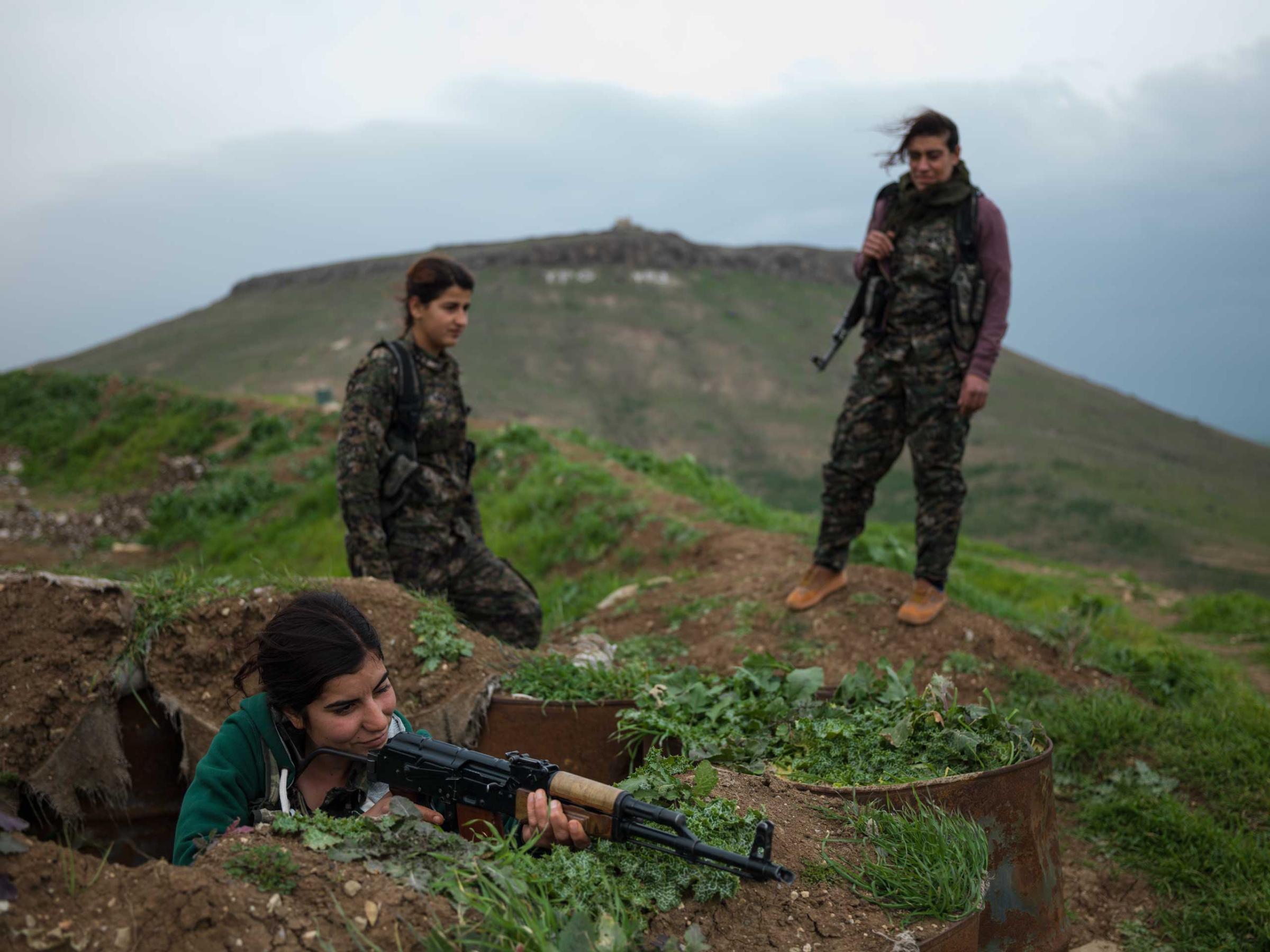
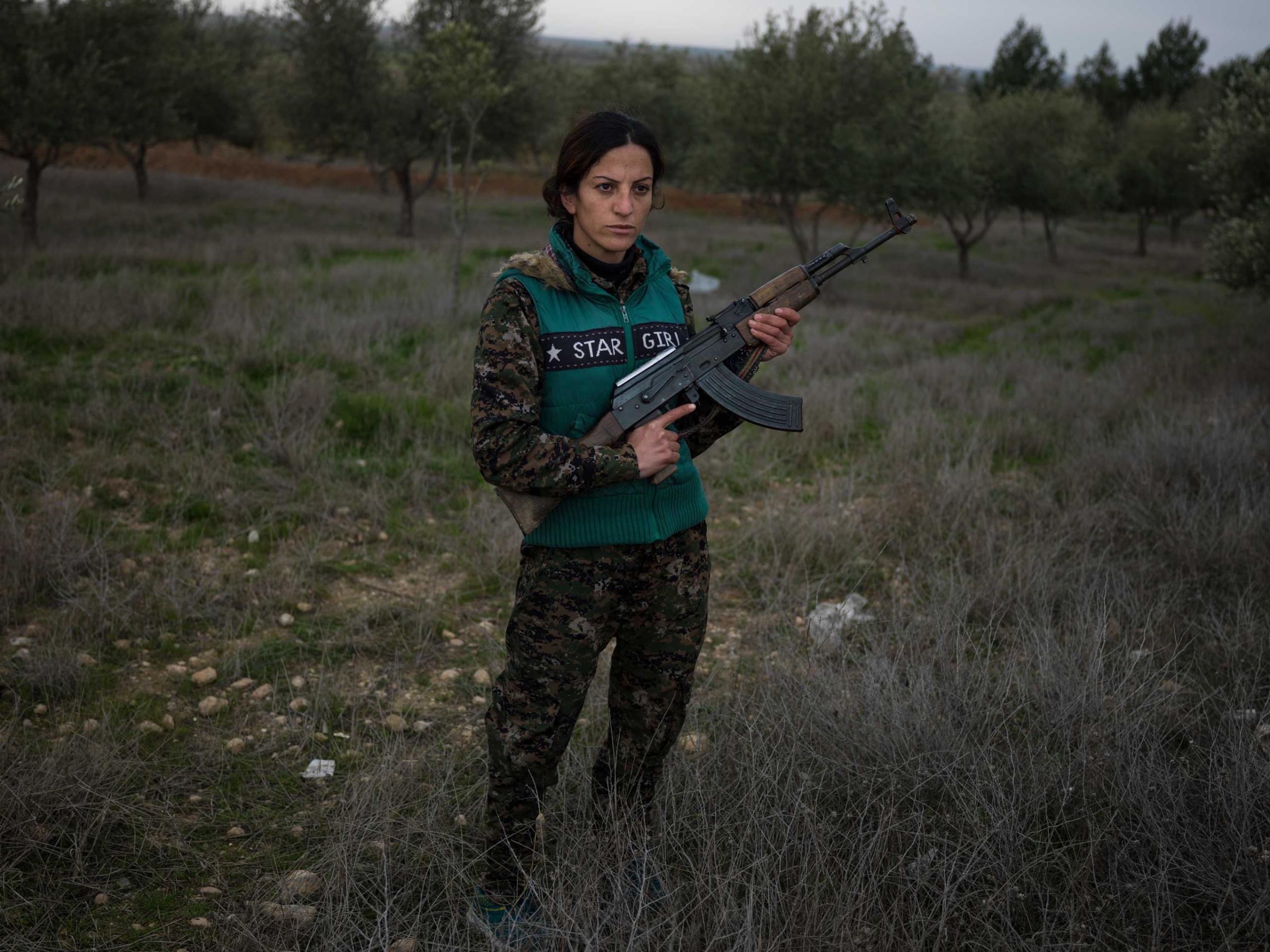
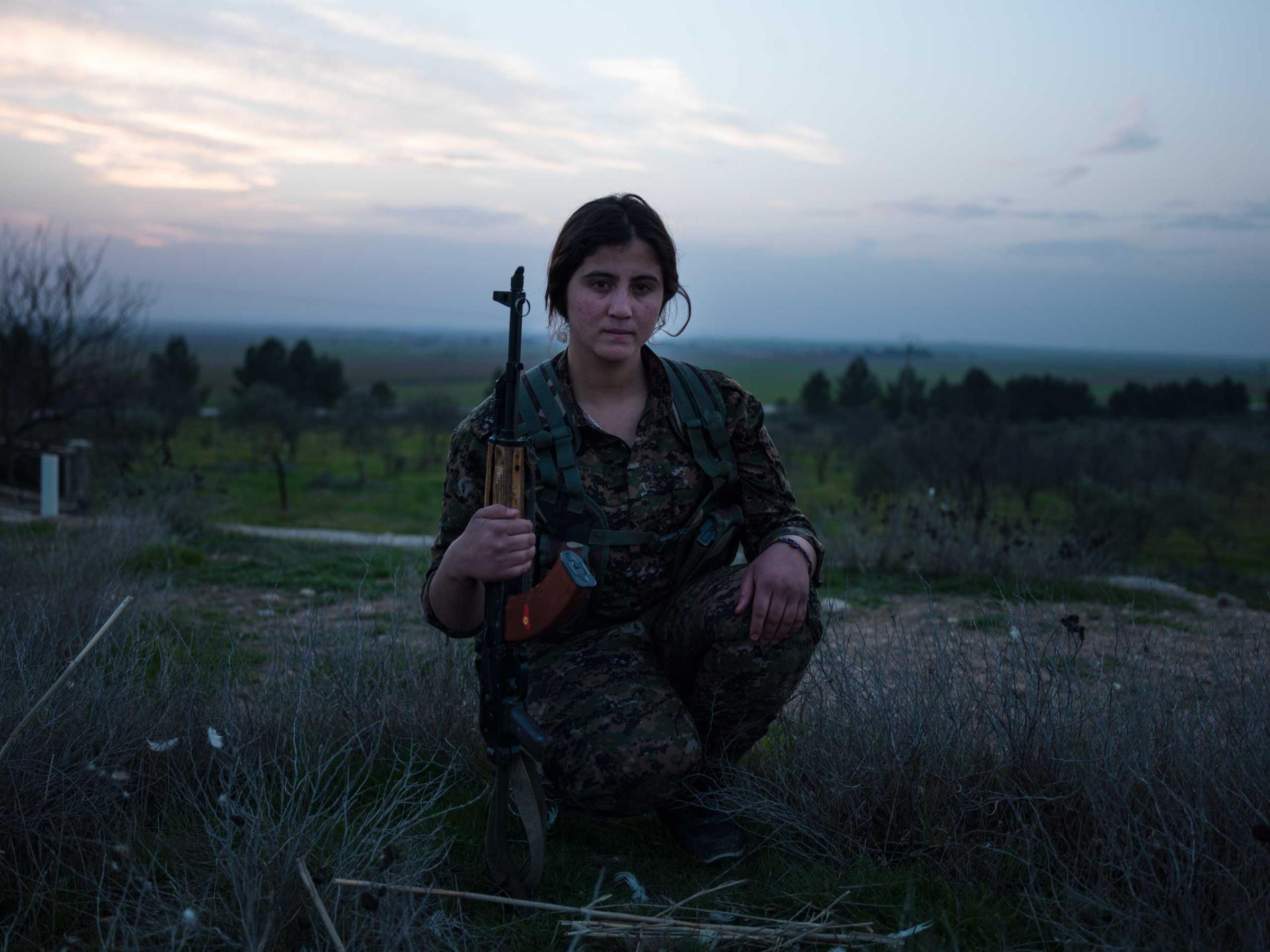
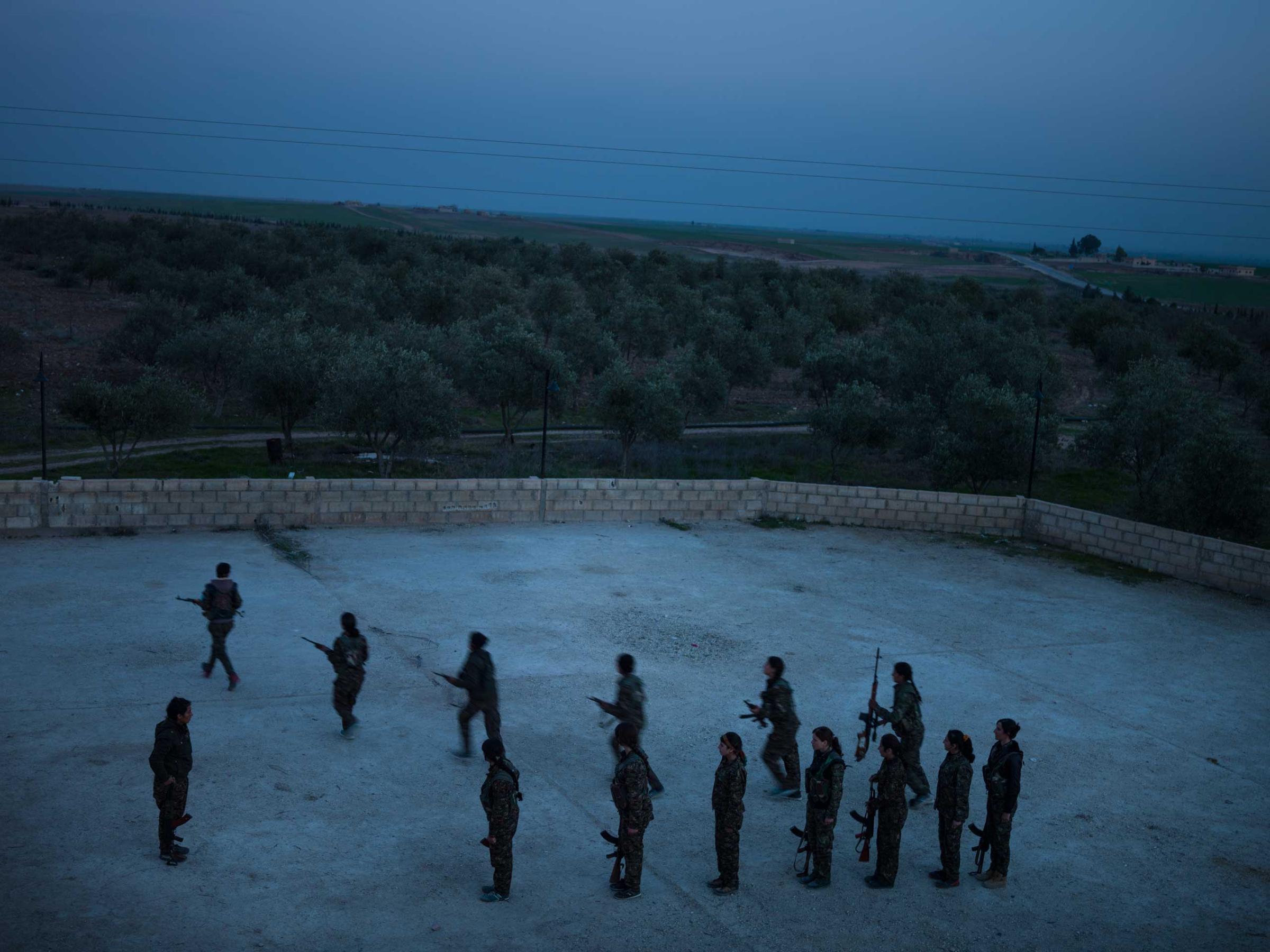
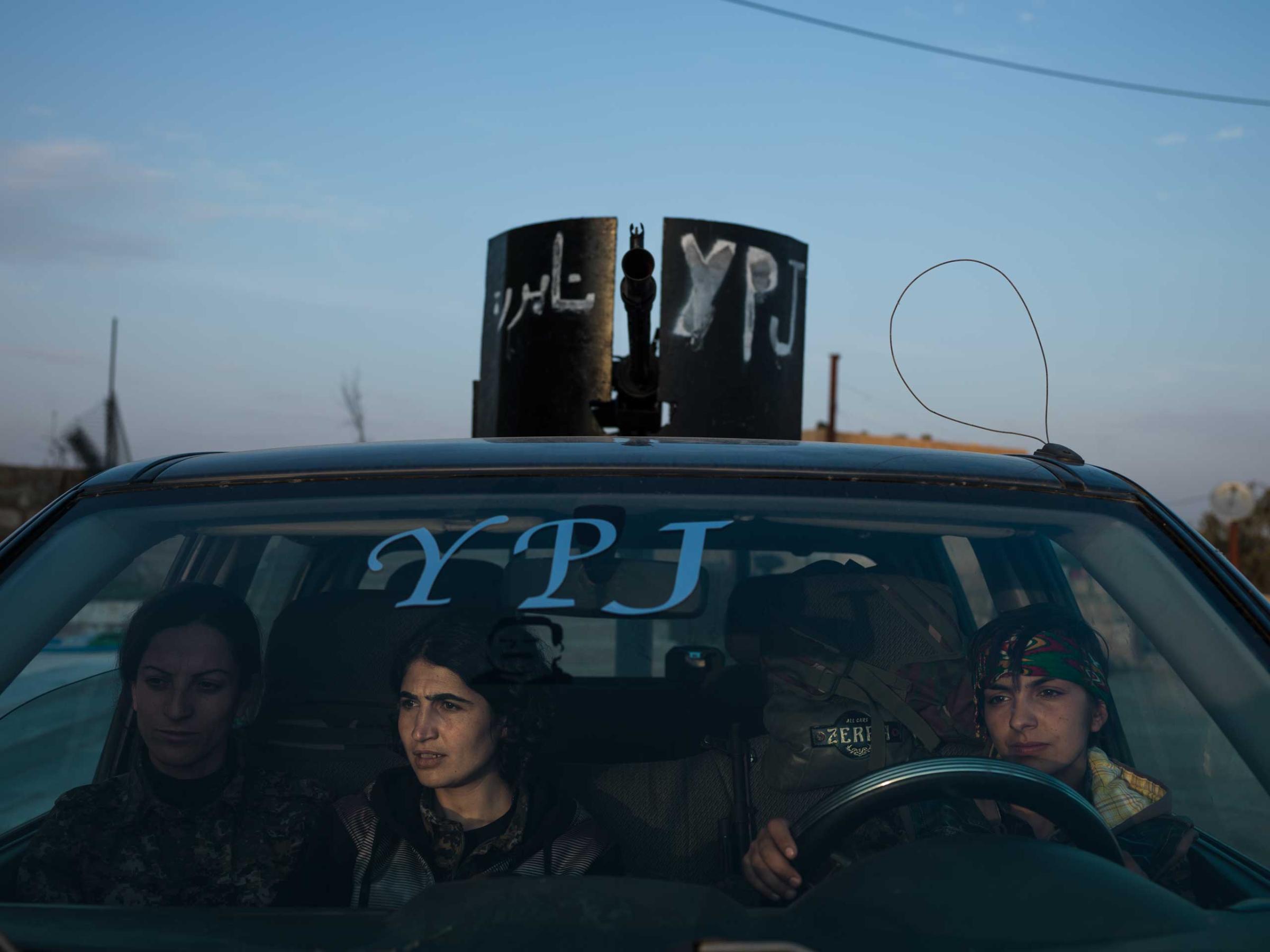
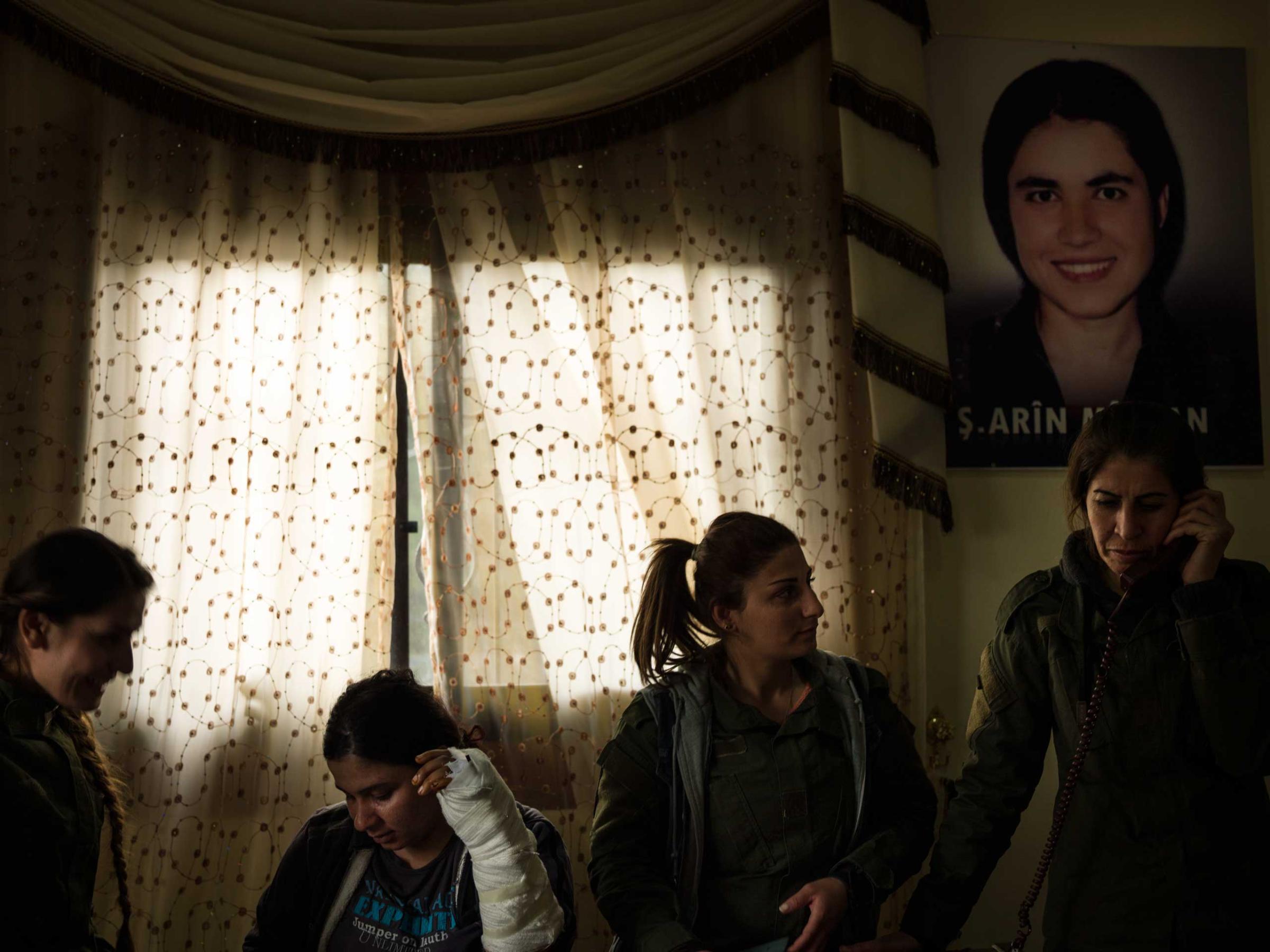
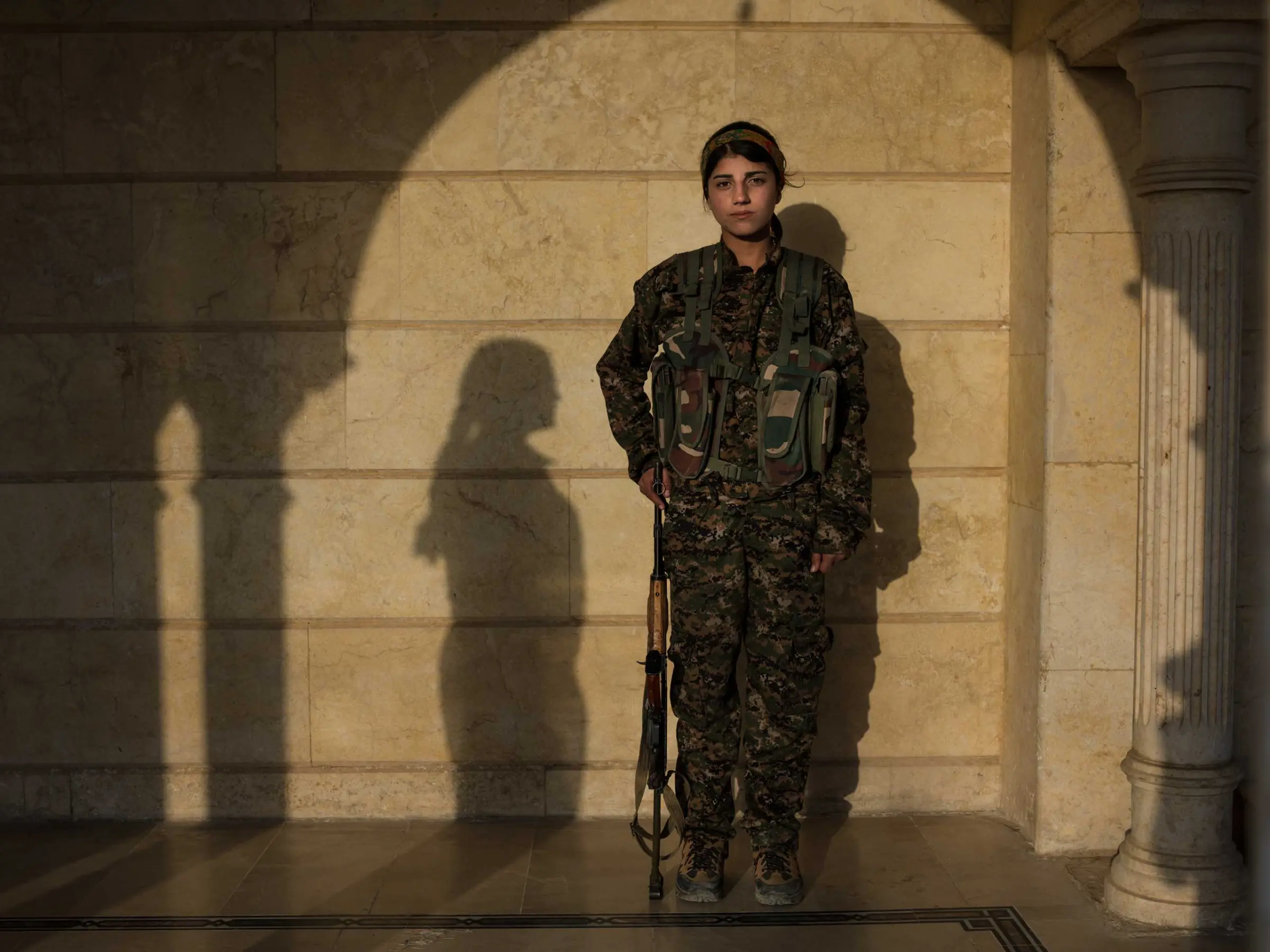
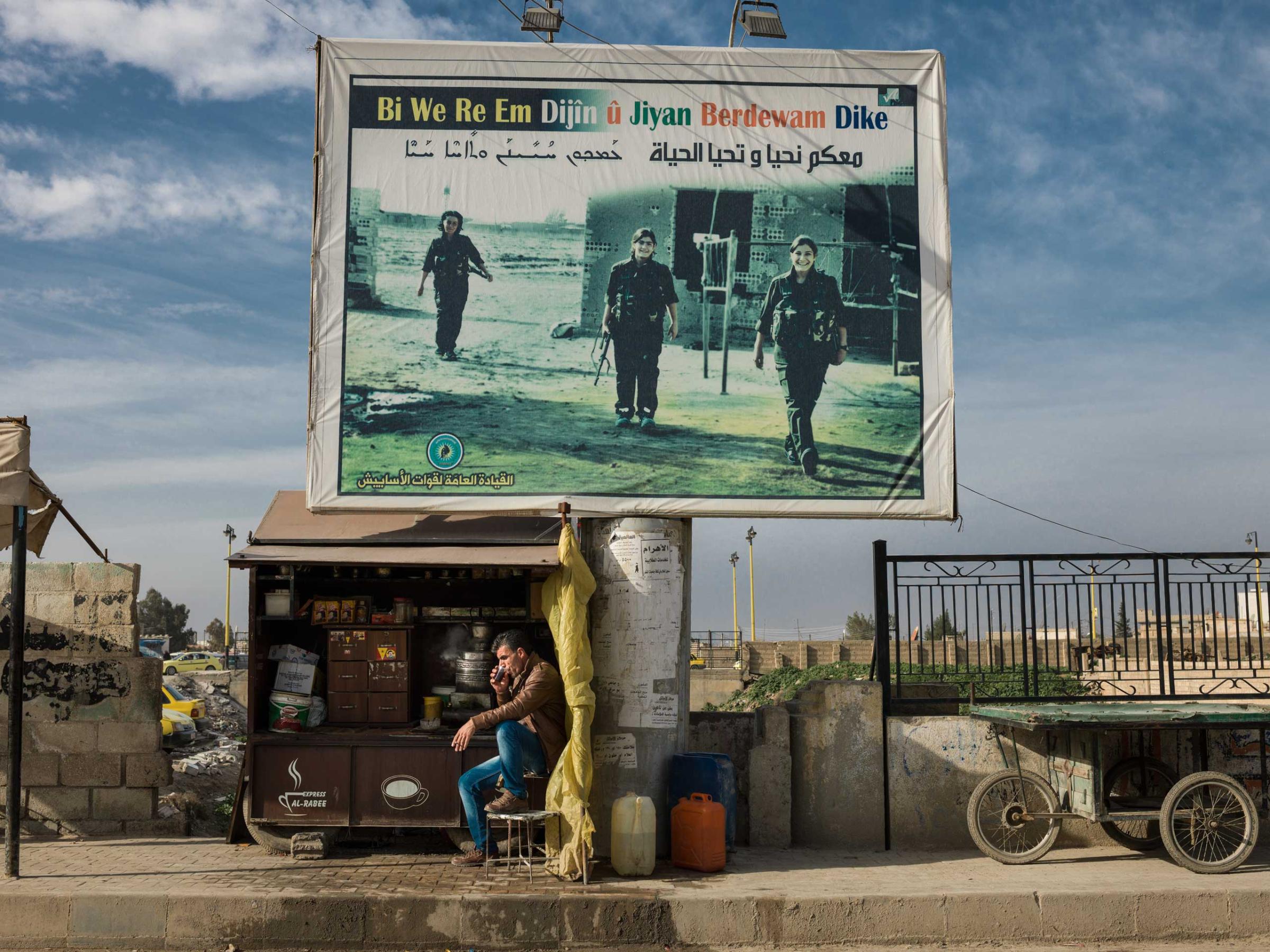
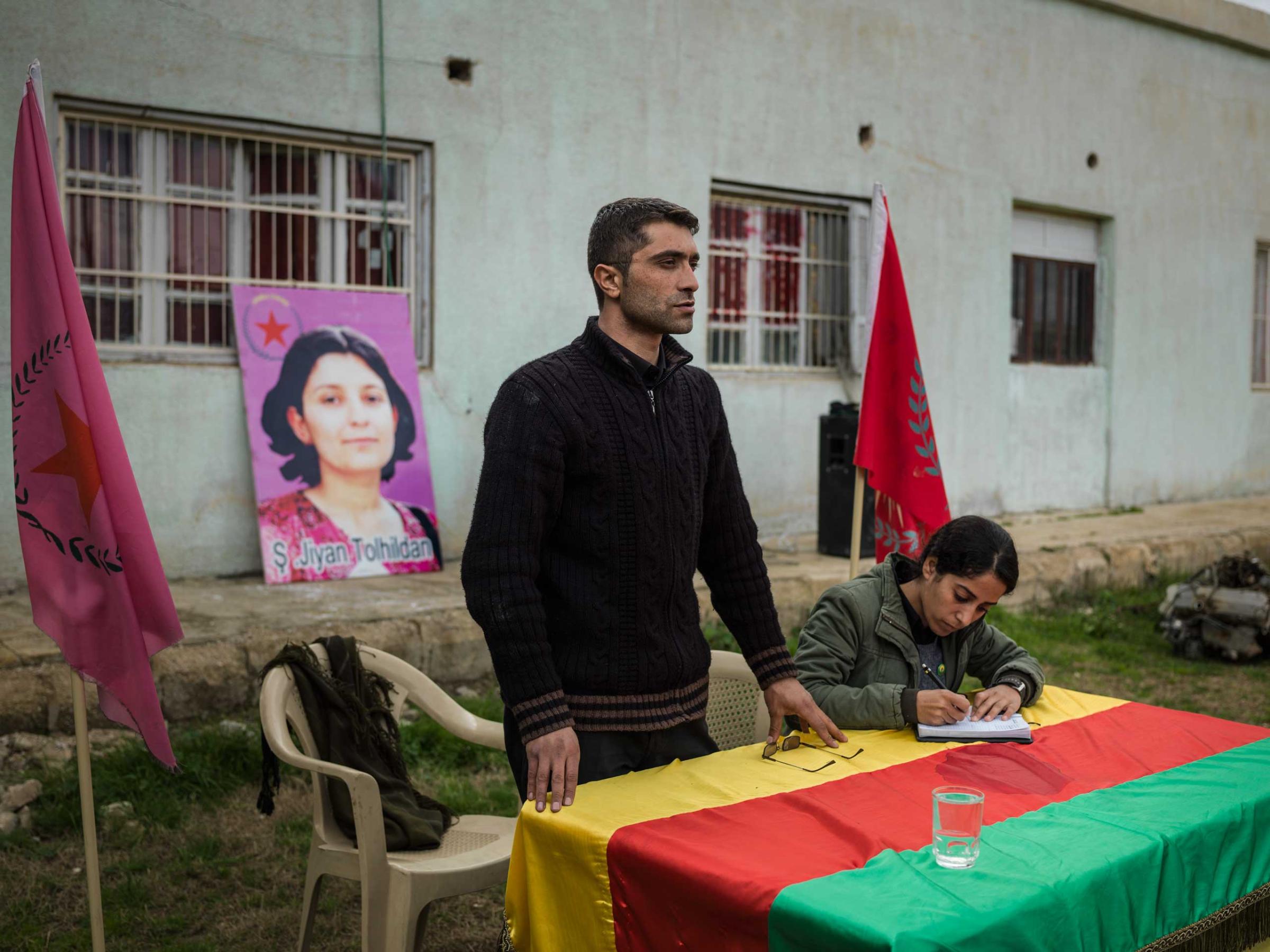
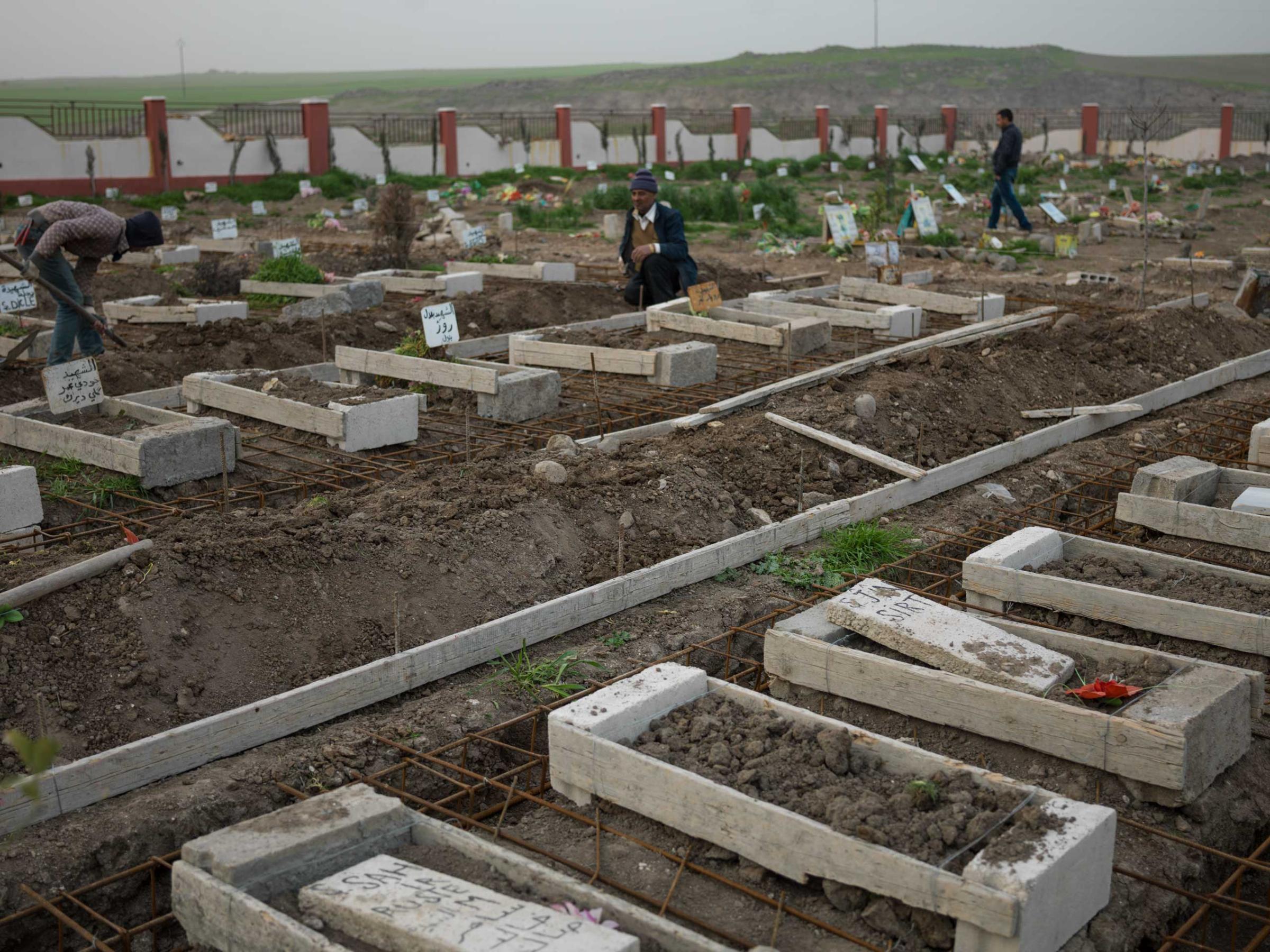
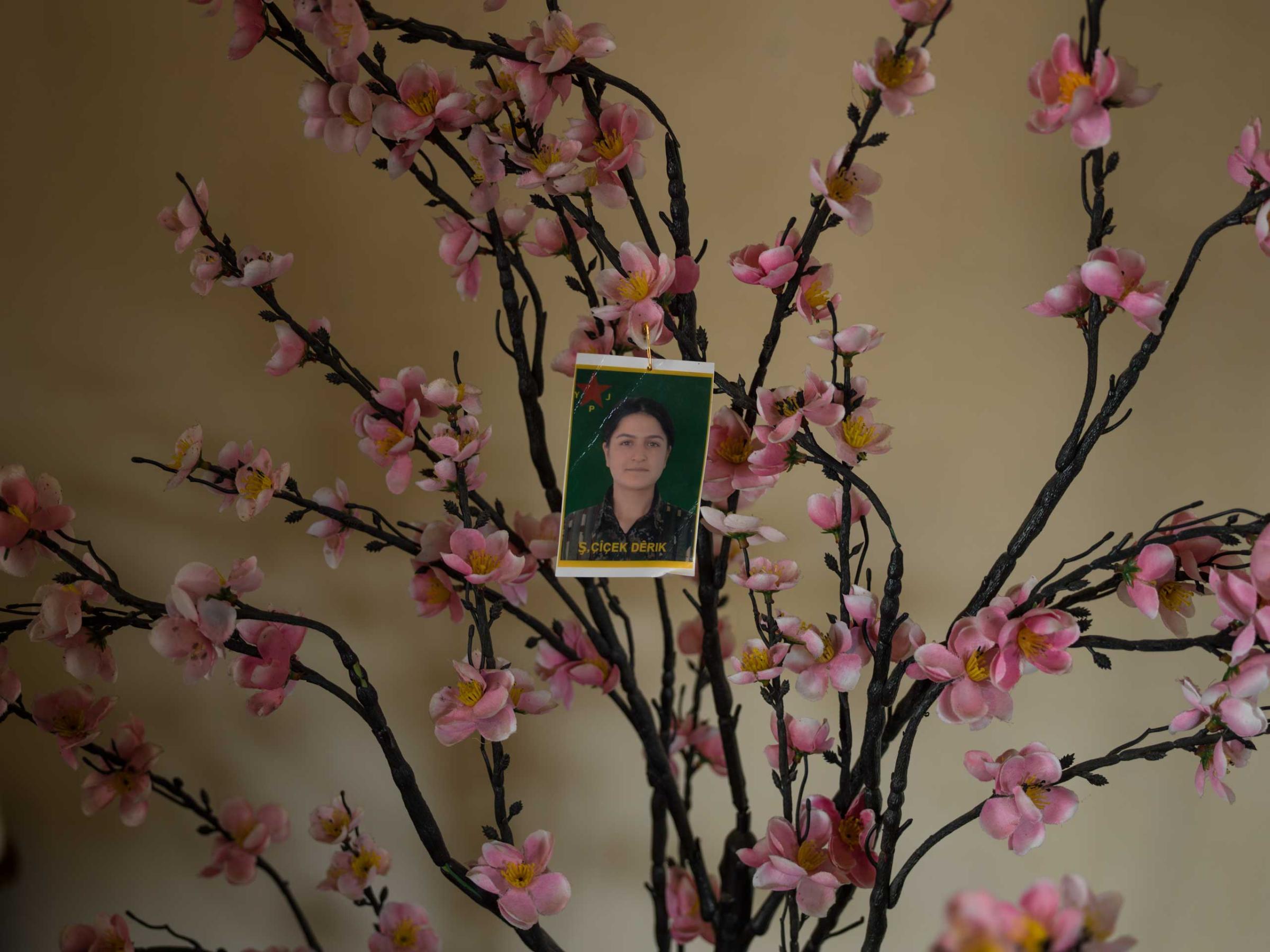
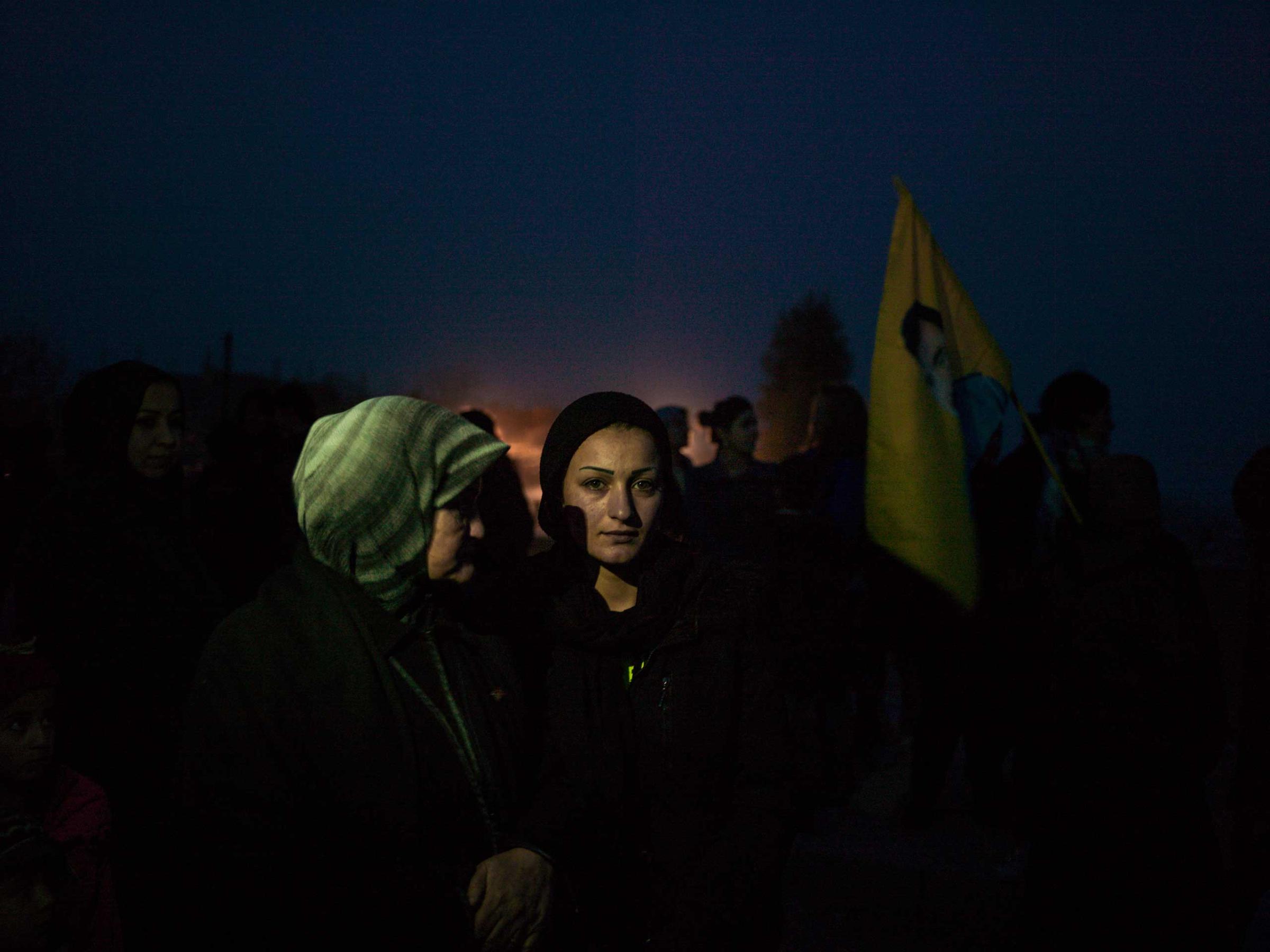
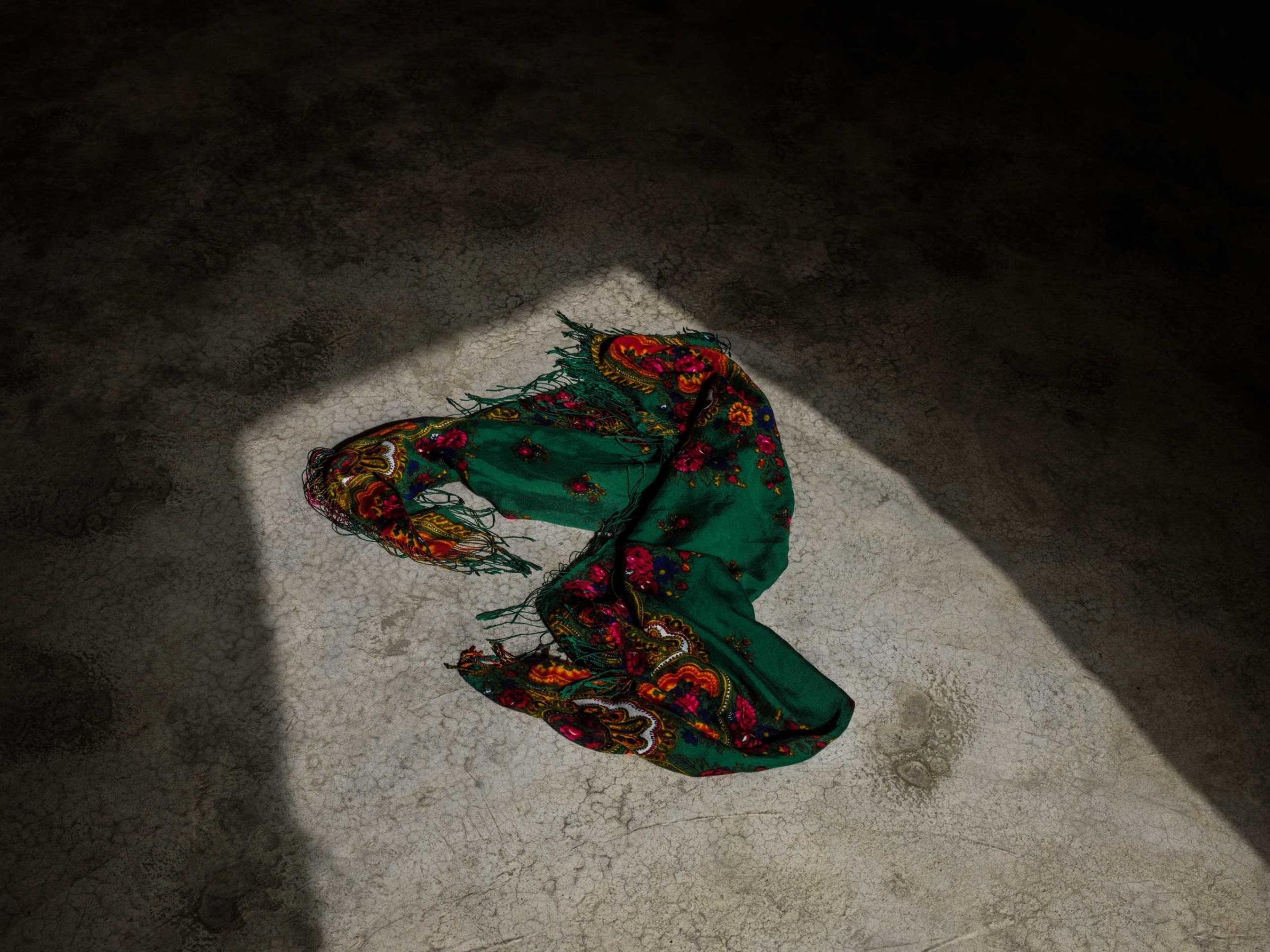
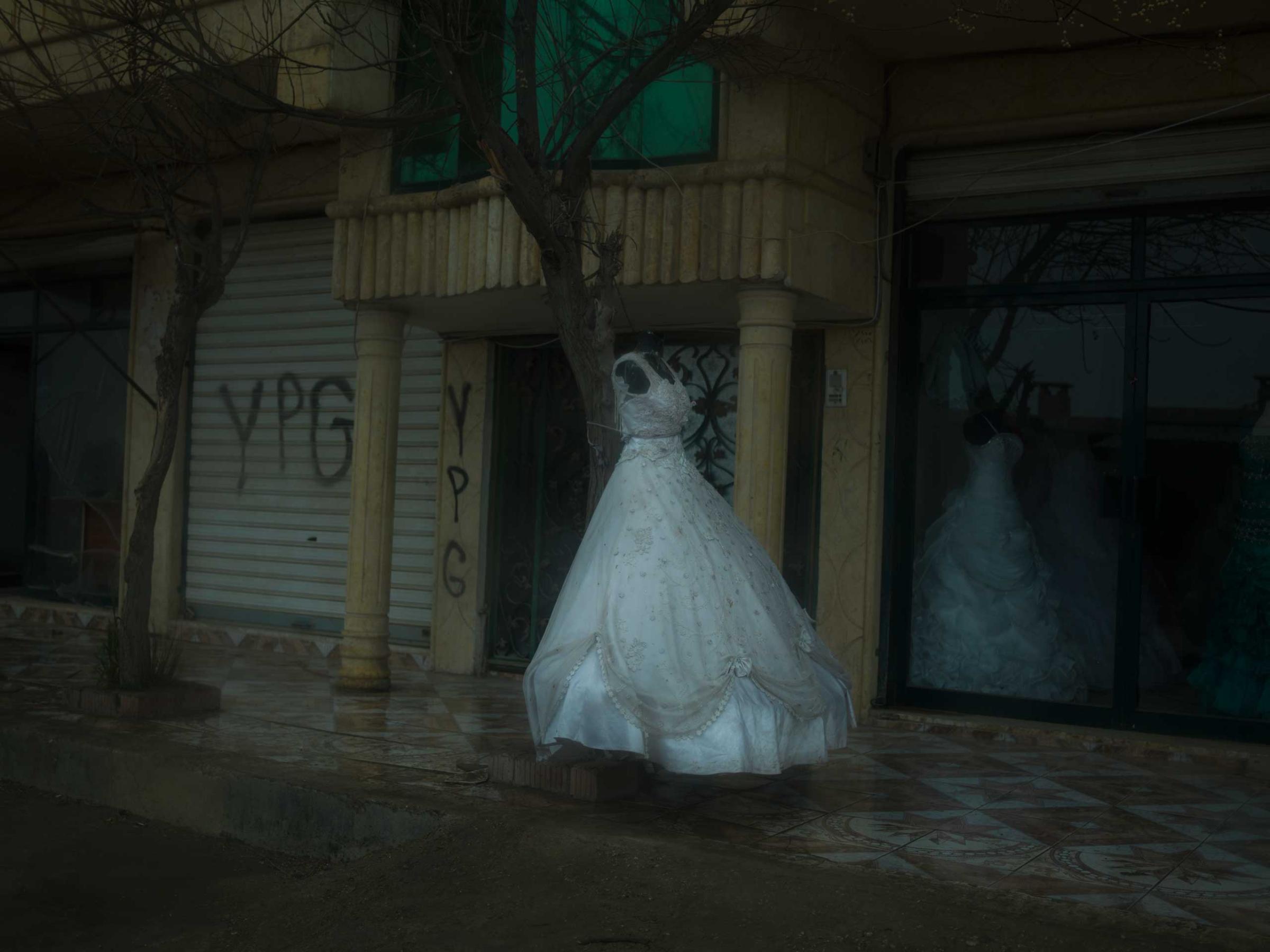
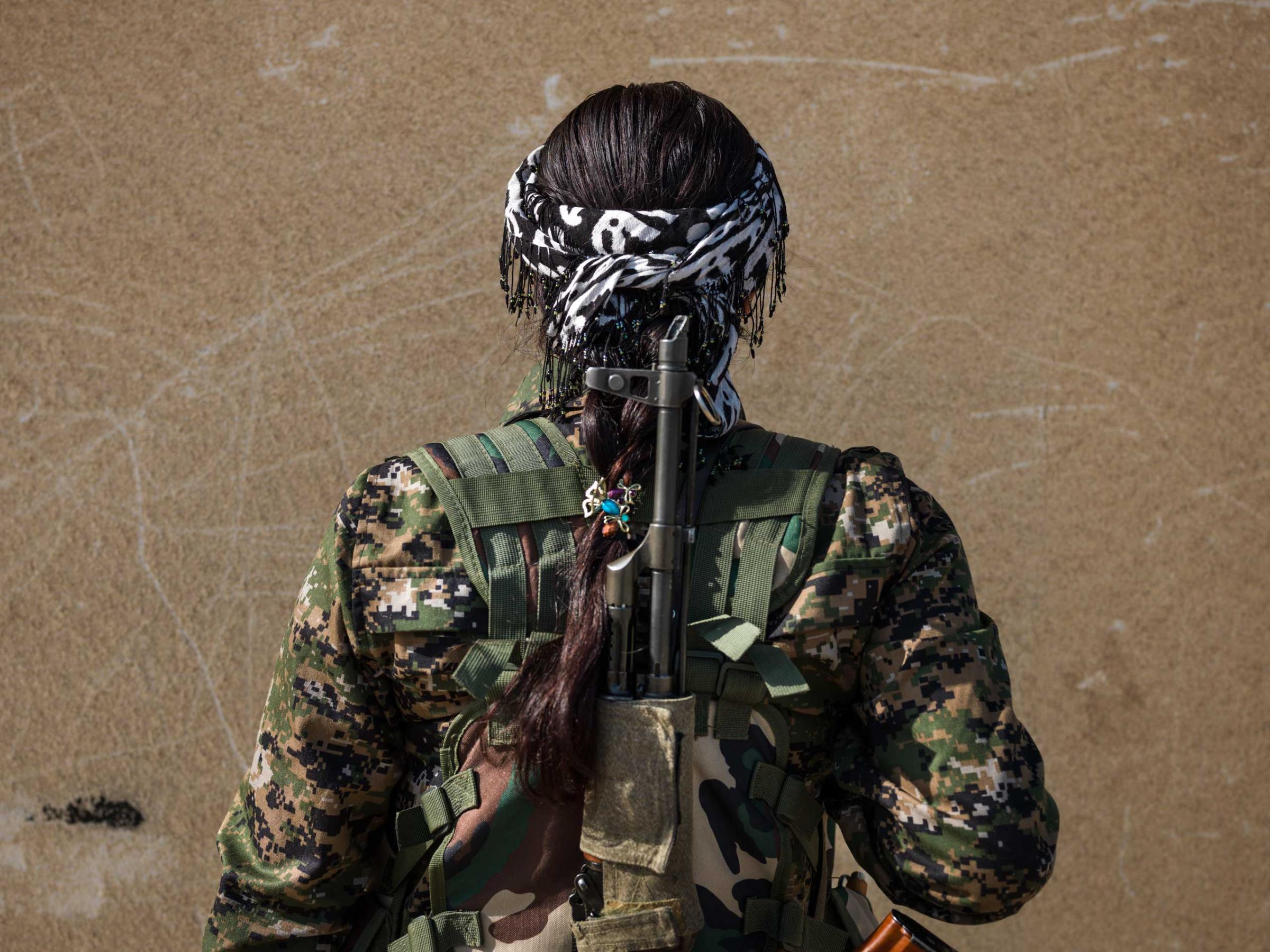
More Must-Reads from TIME
- Why Trump’s Message Worked on Latino Men
- What Trump’s Win Could Mean for Housing
- The 100 Must-Read Books of 2024
- Sleep Doctors Share the 1 Tip That’s Changed Their Lives
- Column: Let’s Bring Back Romance
- What It’s Like to Have Long COVID As a Kid
- FX’s Say Nothing Is the Must-Watch Political Thriller of 2024
- Merle Bombardieri Is Helping People Make the Baby Decision
Contact us at letters@time.com